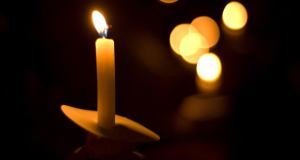Since the coronavirus pandemic stretched to a worldwide level, those who have contracted it and developed COVID-19 as a result, are now sharing their experiences following their recovery. Unlike the common cold or flu, COVID-19 doesn’t come with a certain set of symptoms — it does, it’s just not the same for everyone. While some have anything from a cough and temperature, to body aches and shortness of breath, others feel nothing.
“I thought nothing of it and figured it was from the travel, since the only symptoms I had were congestion and a headache,” Olivia — who prefers to only use her first name — told CNET. “The next day I started feeling worse, but still hadn’t shown any of the major signs of [the coronavirus] until I woke up at 3 a.m. Thursday morning and I was running a 100.2 fever.” Following her initial symptoms, it got worse for her by turning into a higher fever, chills, body aches and extreme fatigue. Around two weeks after she started experiencing symptoms, she felt that she had recovered.
Videos by PopCulture.com
While some take up to a week or two to experience symptoms, Lauren Rowello said her symptoms came on so fast, she had no time to react. “I should have followed the trail of symptoms and illness through my house, but I didn’t expect any of it to be a big deal — especially since everyone else dealt with it so easily,” she said after explaining that her kids had a minor cough, along with her husband, but never thought twice about it when she got it since it didn’t progress into more with them. “The severity of my symptoms seemed to come out of nowhere and progressed so fast that I didn’t have much time to react to them.” As a response, her doctor put her on steroids for the inflammation and gave her some other medications to help with her breathing, and after about three weeks she still has a cough but feels a lot more normal than she did.
Unlike Rowello and Olivia, Dr. Tracy Gapin says the worst of his symptoms were sudden chills and a few night sweats, along with a serious case of fatigue. “This isn’t simply being tired, but it’s a dense brain fog that has really limited my cognitive function … I’ve had to take multiple naps on some days to get through the day.” Although he’s had a few symptoms, he still considers them to be mild compared to some and he credits his already healthy lifestyle as why he may have recovered faster and easier. “Every aspect of my health was really a big part in my getting over this virus. Immune optimization, hormone health, nutrition, fitness — all of it is important,” he said.









